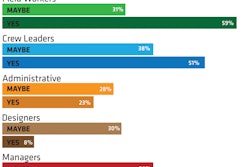Back in early September (of 2011), President Obama unveiled a job-creating package designed to put the unemployed back to work. Just a couple of weeks later, the Professional Landcare Network (PLANET) filed a lawsuit against the U.S. Department of Labor (DOL). While these two events are not directly related, they are not completed unrelated either.
In its final ruling to revise the wage calculation methodology of the H-2B seasonal guest worker visa program, DOL said its responsibilities are to ensure that U.S. workers are given priority, and to protect U.S. workers' wages and working conditions from being adversely affected by the employment of foreign workers. This says a lot about the future prospects of a recovering job market, and once again illustrates how the federal government just doesn't get it.
On the surface it sounds simple: lots of Americans looking for work … 66,000 H-2B work visas granted per year … why not just hire some of the 14 million unemployed Americans to fill these 66,000 seasonal positions? One reason might be that, at least in most states, unemployment insurance still puts more money in the bank than a $12/hour job on a maintenance crew.
Forcing employers to pay its seasonal H-2B workers another $4 an hour will not result in the hiring of more U.S. workers. What it will do is drive up the labor costs of law-abiding contractors, put additional downward pressure on profits and opportunities to re-invest, create more uncertainty, and provide another unfair advantage to those who employ illegal workers. Furthermore, the larger landscape companies that utilize H-2B will be less likely to pursue further expansion—resulting in fewer opportunities to create new jobs in the way of supervisors and managers.
Here's the thing: The majority of the 4% of landscape companies that utilize H-2B would hire more American workers if they could. But regardless of whether or not they offer to pay a crew worker $12/hour or $16, the problem is that they can't find enough Americans to do the work, for a variety of reasons (see "The Green Industry Jobs Gap").
As the job market continues its weak recovery, it's unknown whether or not the average American will continue to shun work like that found in the Green Industry. If all that's out there are other $10-15/hour service jobs, working on a maintenance crew might not sound so bad anymore. After all, the lead character from the movie "Office Space" finally found happiness when he took a job where he got to work outside.





















